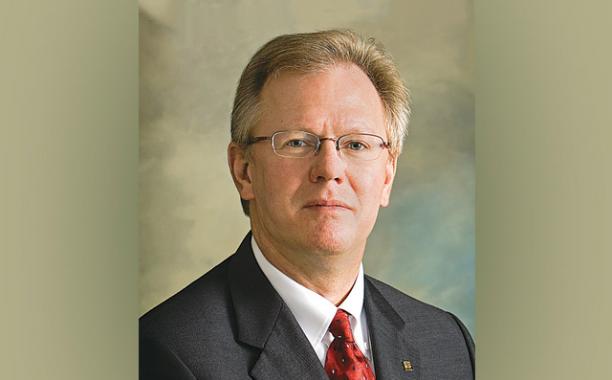
Paris withdrawal cedes leadership, will isolate nation
WHILE THE PARIS climate accord has its detractors — and there are legitimate concerns — turning our backs on the global movement to limit climate change and mitigate its effects is a national policy mistake that must be corrected, and soon.
The decision by President Trump to withdraw from the accord creates a leadership vacuum that will be filled by others, mainly China. The United States will suffer a loss of influence that could place us at a serious disadvantage in areas such as joint research and development of new technologies, including carbon capture, use and storage (CCUS). Advances in such technologies not only offer the best hope for limiting global warming, but they also offer the promise of boosting the economies of nations that lead the way.
A policy of isolation will negatively impact our competitiveness in technology development. It will undermine the efforts of U.S. university researchers, corporations, and government laboratories that even now collaborate around the world with other nations in a quest to find solutions.
We have already lost technology edge in coal-fired plants
THE UNITED STATES has already ceded the technology edge in advanced coal-fired power plants. While the Obama administration was making sure no new coal-fired plants could be built in America, China, Japan and other nations were moving forward with advanced ultra-supercritical technology. Also referred to as High Efficiency Low Emission (HELE) systems, this technology allows coal to be burned at extremely high temperatures and pressures. Because HELE systems burn less coal to generate the same energy output as older designs, they also generate less pollution and lower greenhouse gas emissions.
Today the United States, and in fact all of North America, has but one ultra-supercritical coal-fired plant, AEP’s John W. Turk Plant Jr., built by Boilermakers and other union trades in Arkansas, which became operational in late 2012. By contrast, China reportedly had 46 such plants at the end of 2012 with orders for 100 more.
“The opportunity to lead the world in ultra-supercritical technology has passed us, and the window of opportunity to lead in CCUS may soon close.”
Technology advances by China and Japan, in particular, have led to those nations exporting advanced coal-fired designs, expanding their influence and economic clout.
The opportunity to lead the world in ultra-supercritical technology has passed us, and the window of opportunity to lead in CCUS may soon close if we do not stay engaged with the rest of the world — and if we do not invest substantially more of our resources in this area.
Climate accord is far from perfect
TO BE CLEAR, the climate accord has serious faults. For one thing, it is voluntary and lacks an enforcement mechanism. The nearly 200 participating nations establish their own goals for CO2 emission reduction, so-called intended nationally determined contributions (INDCs). But there is no penalty for not meeting those goals.
Furthermore, expectations are more severe for developed nations like the United States, Canada and European countries. The accord assumes that developed nations must make bigger cuts and meet their INDCs more quickly, while other nations are given latitude to continue their emissions and to allow their rates of emission to actually increase for a period of time before actual reductions occur.
For example, China — the largest CO2 emitter in the world — has said it needs until 2030 to reach its peak emissions rate before emissions even begin to fall. That means the amount of CO2 it pumps into the atmosphere could continue to increase for the next 13 years. On the other hand, the United States, under Obama, committed to reduce greenhouse gas emissions by 26-28 percent below its 2005 level by 2025.
Of course, the U.S. INDC is now off the table with Trump’s decision to abandon the Paris climate accord, but the disparate treatment of developed vs. developing economies has been a major sticking point.
And finally, there is debate as to whether the accord’s goal of limiting temperature rise to 2°C (3.6°F) above the preindustrial level is even feasible. Some critics say the overall impact of the accord’s carbon-cutting — even if every nation achieved its full INDC — would have an almost imperceptible effect on global temperature rise while costing billions (some say trillions) of dollars annually and hurting the economies of the nations making those investments.
Climate change requires a global response
DESPITE ITS FAULTS, the Paris climate accord has one primary strength that cannot be ignored. It focuses world attention on the reality of climate change and guides the world toward a solution. While the accord’s collective emission goals are insufficient to materially reduce expected temperature increases, those goals are envisioned as a starting point, with more aggressive goals envisioned for the future.
To build a global consensus on any undertaking is itself an achievement. It has taken 25 years (dating back to the 1992 United Nations Framework Convention on Climate Change) to reach the Paris accord.
In the wake of Trump’s announcement to withdraw from the accord, governors from California, Washington and New York established the U.S. Climate Alliance to remain involved, and at least nine other states have pledged to stay involved. Mayors of some 300 U.S. cities have adopted the Paris accord since Trump’s pullout.
Many U.S. corporations also support continued involvement and have urged Trump to stay in. Companies fear the absence of the United States could lead to a pushback from the rest of the world, including possible boycotts or carbon-related trade tariffs. World leaders have strongly condemned Trump’s decision to leave the accord, with former UN Secretary General Ban Ki-moon saying, “I think President Trump is standing on the wrong side of history.”
President Trump must lead from the front on CCUS
PRESIDENT TRUMP’S MUCH ballyhooed deal-making skills won’t be of much value if the nation has no voice in the Paris accord. We must re-engage with the other nations of the world. If the accord is imperfect — and it is — we must help change it. We cannot go it alone, and we cannot risk placing our industries at a disadvantage should other nations react to our absence with trade barriers.
The answer is not isolation; it’s firm, positive involvement that protects U.S. interests while helping move CCUS technologies forward. The world is a long, long way from ending its dependence on fossil fuels. We will need CCUS to constrain carbon dioxide and to convert carbon into valuable products rather than releasing CO2 into the atmosphere. The quicker we get there, the better for the climate. It will be necessary to rein in CO2 from gas-fired power plants as well as coal-fired plants — and from power-intensive industries like cement-making, aluminum smelting, petroleum refining and steel-making.
Climate change is a global challenge. It demands a global response, and we must lead from the front.
President Trump must restore America’s leadership in this global effort promptly by re-engaging in the Paris climate accord.












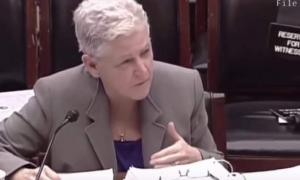
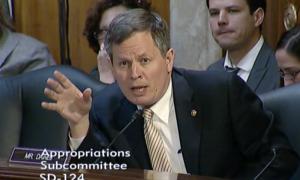
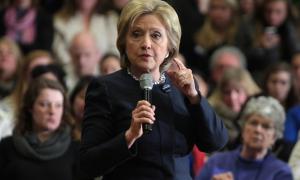

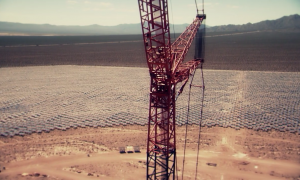
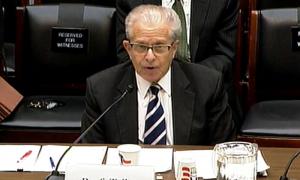
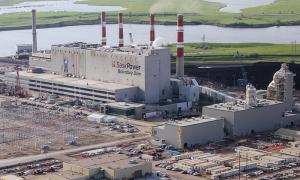
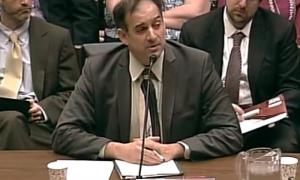
0 Comments